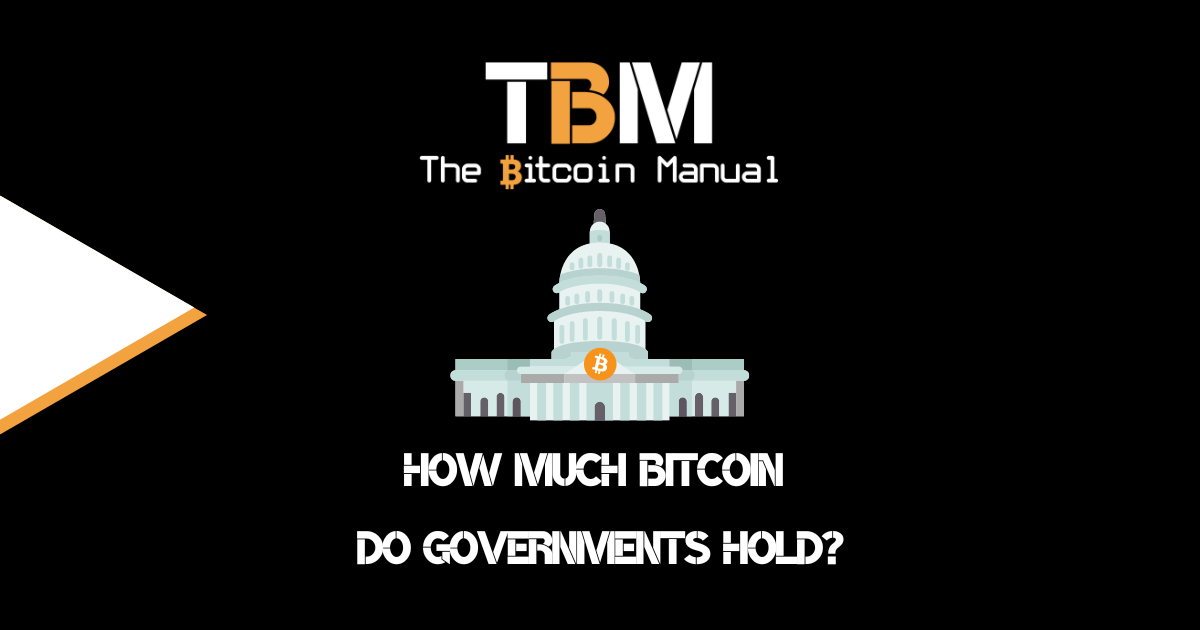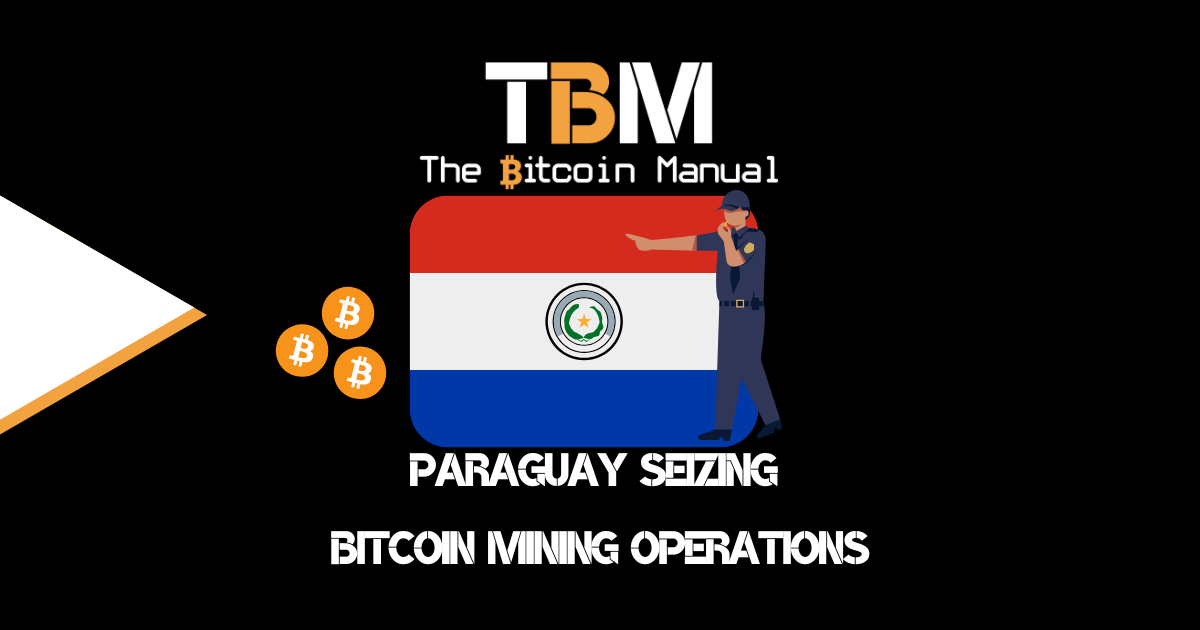It’s been an excellent new month for Bitcoin recently; the launch of the spot ETF has been the catalyst for all-time high-breaking price action, pre-halving, which hasn’t happened before, leaving many a holder extremely bullish.
The suits have finally woken up, and they’re ready to pump our bags; I mean, surely now that Bitcoin has regulated products, we’ve reached a stage of acceptance, right? Right?
Well, not exactly; with significant institutional players entering the market comes a lot more scrutiny, and as a result, we’re back to the “then they fight you phase” as parts of the Bitcoin ecosystem start to get blackballed.
Bitcoin is touted for its decentralised nature, self-sovereignty, and censorship resistance. These attributes attracted many of us to the asset and are key to the network’s longevity and success. Still, those are attributes of the chain, and businesses built on top of Bitcoin are not protected against government attacks. It seems the soft spots of Bitcoin are becoming targets.
We’re from the government and we’re here to help you
Bitcoin is for everyone, and you can do what you like with your corner of the network and ownership of assets, thats what custodial services and spot ETFs offer, you have your walled garden and you set your own rules, while the rest of the network follows their own pricples.
Everyone can happily use the network if the underlying chain consensus isn’t affected. But the authorities do not like this status quo, and they’re looking to herd Bitcoiners into regulated walled gardens.
We’ve seen shade thrown on self-custody, with the demonisation of “unhosted wallets.” We’ve seen the call to register unhosted wallets. We’ve seen the imposing of travel rules on Bitcoin transactions, and now there is increasing scrutiny regarding user privacy.
Regrettably, this scrutiny has not remained theoretical or empty threats but has manifested as tangible pressure on tools designed to bolster Bitcoin transactions’ anonymity and self-custody, a situation that should be taken seriously.
Samourai Wallet shutdown
In April 2024 news broke that Samourai Wallet, a popular tool known for its advanced anonymity features, was abruptly shut down. The company behind it, allegedly facing legal pressure, announced it would cease operations entirely.
Samourai’s web servers hosted in Iceland and domain (https://samourai.io/) were seized, a seizure warrant for its mobile application was served on the Google Play Store. Per DOJ, the application will no longer be available to download from the Google Play Store in the United States.
According to the press release, the duo developed, marketed and operated the mixer, which “facilitated more than $100 million in money laundering transactions from illegal dark web markets.”
“$2 billion in transactions with an unlicensed money transmitter means $2 billion flowed without any oversight, from whomever to wherever…Samourai Wallet is now closed for business.”
IRS-CI Special Agent in Charge Thomas Fattorusso
The news has shocked those in the Bitcoin and privacy focused community and while we will have to wait for the outcome of the case, the charges include conspiracy to commit money laundering and conspiracy to run an unlicensed money transmitting business.
These charges could lead to a maximum sentence of 20 years and five years, respectively
Phoenix Wallet flees US market
Shortly after the Samourai Wallet incident, Phoenix Wallet, Lightning wallet and Lightning Service Provider (LSP), announced its removal from the Apple App Store for US users. This move suggests potential pressure from US authorities on apps that facilitate Bitcoin transactions in a non-custodial manner, and the aim to restrict access to such tools or put considerable pressure on service providers to track users..
On May 3rd, 2024, @PhoenixWallet will be removed from US app stores.
— Phoenix Wallet (@PhoenixWallet) April 26, 2024
Users from the US should empty their wallet:
– Settings > Close channels (Android)
– Settings > Drain wallet (iOS)
We highly recommend *not force-closing* channels, as on-chain fees could be significant.
Phoenix wallet is not the first wallet to break ties with the US, custodial Lightning app Wallet of Satoshi made the move in November 2023, citing the growing regulatory scrutiny facing Bitcoin companies in the country and their unwillingness to track their users, which would be required for them to continue serving US clients.
Wasabi wallet blocks US users
Following the news that their competitor was taken down, Wasabi Wallet, another non-custodial privacy wallet known for its coin shuffling functionality to enhance transaction privacy, has taken a different approach.
They’ve now restricted access to their website and services entirely for users located in the United States. Effective immediately and until further notice, zkSNACKs the company behind the wallet software blocks U.S. citizens and residents from visiting its websites, downloading and using Wasabi Wallet and any related products and services, including APIs and RPC interfaces.
“In light of recent announcements by U.S. authorities, zkSNACKs is now strictly prohibiting U.S. users from using its services. An IP address blocking for U.S. residents is effective on wasabiwallet.io, api.wasabiwallet.io and zksnacks.com.”
– Wasabi Wallet Team
This comes as a surprise as Wasabi’s direct competitor has gone down, leaving many without a like for like option to conduct mixing. Wasabi also employs stricter rules on accessing a coinjoin by having a OFAC complaint screening process before a UTXO can entre a mixing cycle, which is an olive branch towards complaincy with the US justice department.
Seeing Wasabi feel it’s still not worth serving the US market does raise concerns about the future of Bitcoin privacy tools.
CoinJoins are painted with the brush that this is a service used by criminals, terrorists and unfriendly nations, but if these were the only users, they would not have much anonymity since they’re only mixing with one another, so we could assume all funds in CoinJoins would be criminal proceeds, but that isn;t the case.
If we look at the alleged funds claimed to be “laundering”, its only a fraction of the funds mixed in CoinJoins meaning the vast majority of people are simply looking to protect their financial privacy.
Damned if you do, damned if you don’t
As a company, you are a single point of failure, you can be targetted by governments and regulatory authorities and have to abide by certain rules to stay in business. Not only that but you have a responsibility to your employees, investors and remaining customer base to keep your company and products operating profitably and that can mean picking survival or battles you can win.
This is surely not an easy choice to make for any company, abandoning the US market is a brutal choice for Bitcoin wallets, companies backing them and their developers. The US represents the biggest Bitcoin market globally, and the lost customer base and revenue are a massive blow to their operations, and possible profitability.
Finding new users in other markets, even combined, might not make up for the shortfall, while these other markets with less disposable income, language barriers and adoption rates can might make acqusion of users costlier.
Staying in the US, however, comes with its own set of challenges and even with a larger market and better margins you’re faced with navigating complex regulations and implementing stringent compliance measures can be expensive and time-consuming.
For smaller companies and startups, these costs could be crippling, potentially forcing them out of business altogether.
It’s a no-win situation, with significant drawbacks on either side of the decision.
What’s next for Bitcoin privacy?
The future of Bitcoin privacy tools remains uncertain, as the spotlight will be on any company or developer that tries to promote tools that offer any kind of anonymity. The Samouri case and Tornado Cash case are likely going to be used to set an example and it’s possible that these recent events could lead to a chilling effect, with developers hesitant to create or maintain such services.
Is there a compromise? I doubt it.
The possible scenario for privacy tools to exist might involve building front ends on protocols and using strategic jurastictional arbitrage of federations members to try and mitigate the ability to tie mixing and masking to a central figure or company.
Alternatively, it would need to be operations that are baked into transactions, like PayJoins, which allow users to combine transactions and save on fees, but also increase privacy, a tool that comes in handy with increased fees, meaning privacy is improved solely by peoples need to want to reduce their transaction costs.
Users deserve some level of financial privacy, but there’s always going to be this cloud hanging over any privacy tech, claiming its used for illegal activity.
US becoming paper HODLers
The fearmongering is in full swing this year, with the FBI recently warning Americans against using cryptocurrency money transmitting services that are not registered as Money Services Businesses (MSB) according to United States federal law and do not adhere to anti-money laundering requirements.
If you’re not using some KYC-cucked exchange, you’re a criminal, is what they’re trying to say. Using a service that does not comply with its legal obligations may put you at risk of losing access to funds after law enforcement operations target those businesses.
You’ll own bitcoin etfs, have no privacy, and be happy
— Crypto Tea (@CryptoTea_) April 25, 2024
This makes little sense because if you’re using non-KYC, you’re likely taking custodial ownership of your funds or taking minimal custodial risk until you withdraw the funds, so where is the risk?
The agency then recommends avoiding cryptocurrency money-transmitting services that do not collect customers’ know-your-customer (KYC) information when required and checking whether they are registered with FinCEN.
Basically, they’re encouraging you not to own real Bitcoin but rather IOUs with US-domiciled exchanges or paper products like ETFs, where the data can be easily extracted to check how much you own and possibly owe in taxes, should you be selling or trading.
There's a war on financial privacy. It will not magically stop because you hold some btc and "number go up". Larry "markets like totalitarian governments" Fink + his cronies want to make Bitcoin part of the programmable-surveillance digital money ecosystem, they are winning rn https://t.co/0KdKIgauU3
— Whitney Webb (@_whitneywebb) April 24, 2024
Every action has a re-action
The Bitcoin community is reeling from the recent shutdown of Samourai Wallet and limitations imposed by Wasabi Wallet. But it has sparked a reaction and opened the door for alternative privacy tools like JoinMarket, a protocol which allows users to run their own mixing on their personal Bitcoin node.
Wasabi and Samourai which charged fees for their coordination services to pay for the operations and JoinMarket is similar. Using a front end like JAM or any future JoinMarket front ends, it lets users set their own fee to use their liquidity thus creating an open fee market for privacy.
With the US government seemingly cracking down on privacy tools, this could lead to a significant increase in the yields offered by JoinMarket for users willing to mix their coins.
This presents a potentially lucrative opportunity for those with spare Bitcoin, but it comes with a caveat. Users will need to exercise caution when transferring funds to these mixing services and ensure they adhere to best practices for anonymizing transactions and communications when running their own node.
HRF’s Bitcoin Development Fund has made several grants to JoinMarket projects and contributors
— Alex Gladstein 🌋 ⚡ (@gladstein) April 25, 2024
Now would be a *great* time to apply for funding to do this kind of work!
Feel free to DM me if you need the link to apply
Centralised coordinators indeed proved that there was a market for these types of transactions. Still, the risk-reward ratio might be too high for a single actor to facilitate user communication in the current climate.
Centralised mixing coordinators may have a place in specific markets open to financial privacy. We now know that is not the US, and those countries that are friendly or aligned with the US will likely fall in line, so be prepared to see these rules rolled out in your country, too.
This is where open-source development and decentralised technologies could ensure continued access to privacy tools and put the power in the hands of the individual, yes it comes with added complexity and cost, but this is the cost your government is placing on you to maintain your anonymity when transacting what your own money.
What do you think?
Is this a wake up call that was long overdue as many of us got wrapped up in price action and NGU? Are these restrictions necessary to push improvements in Bitcoin custody and privacy solutions?
Let’s keep the conversation going in the comments below or hit us up on nostr!




